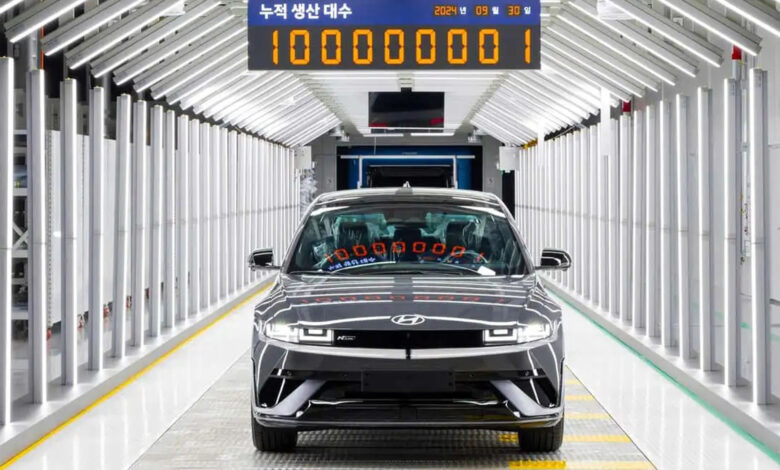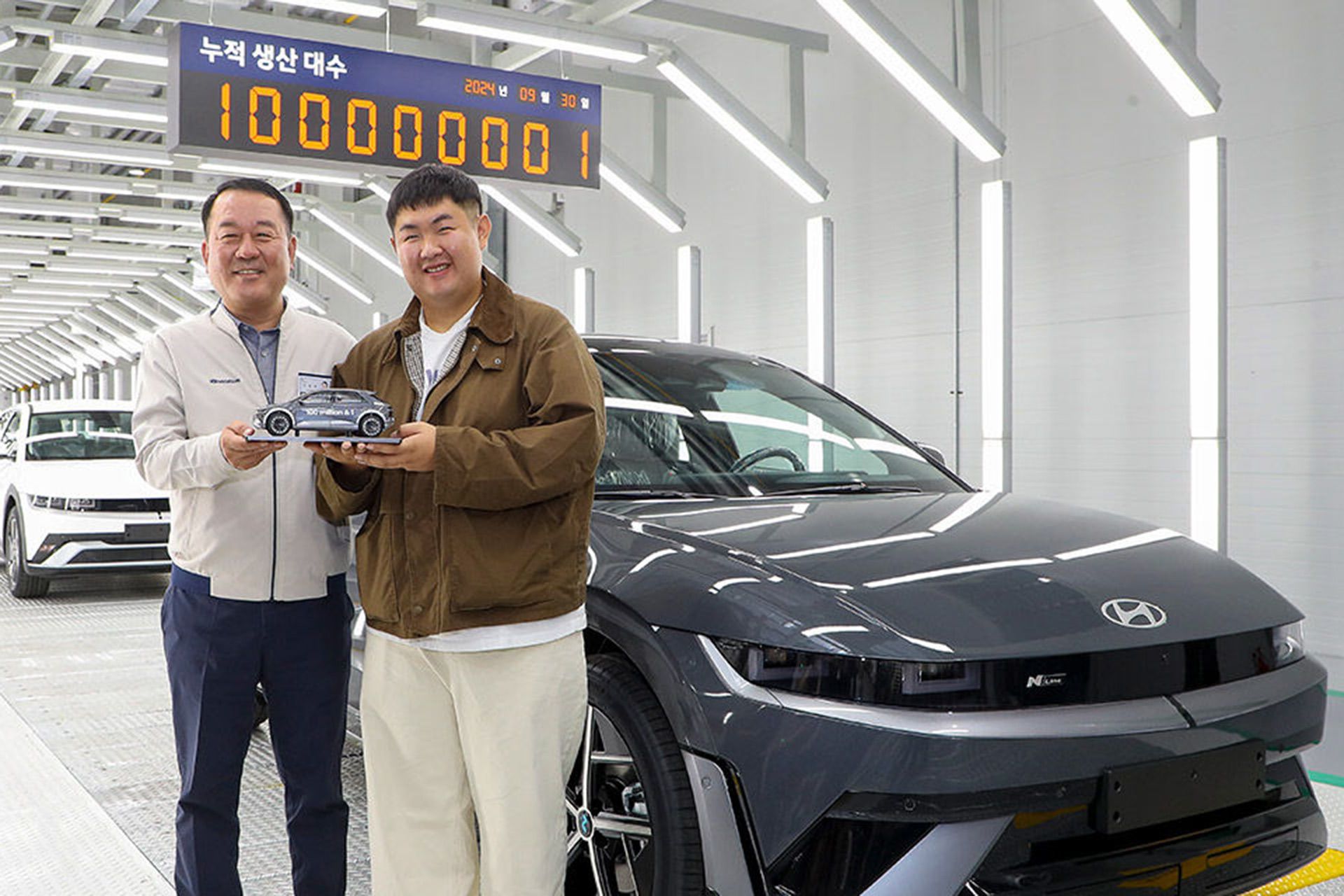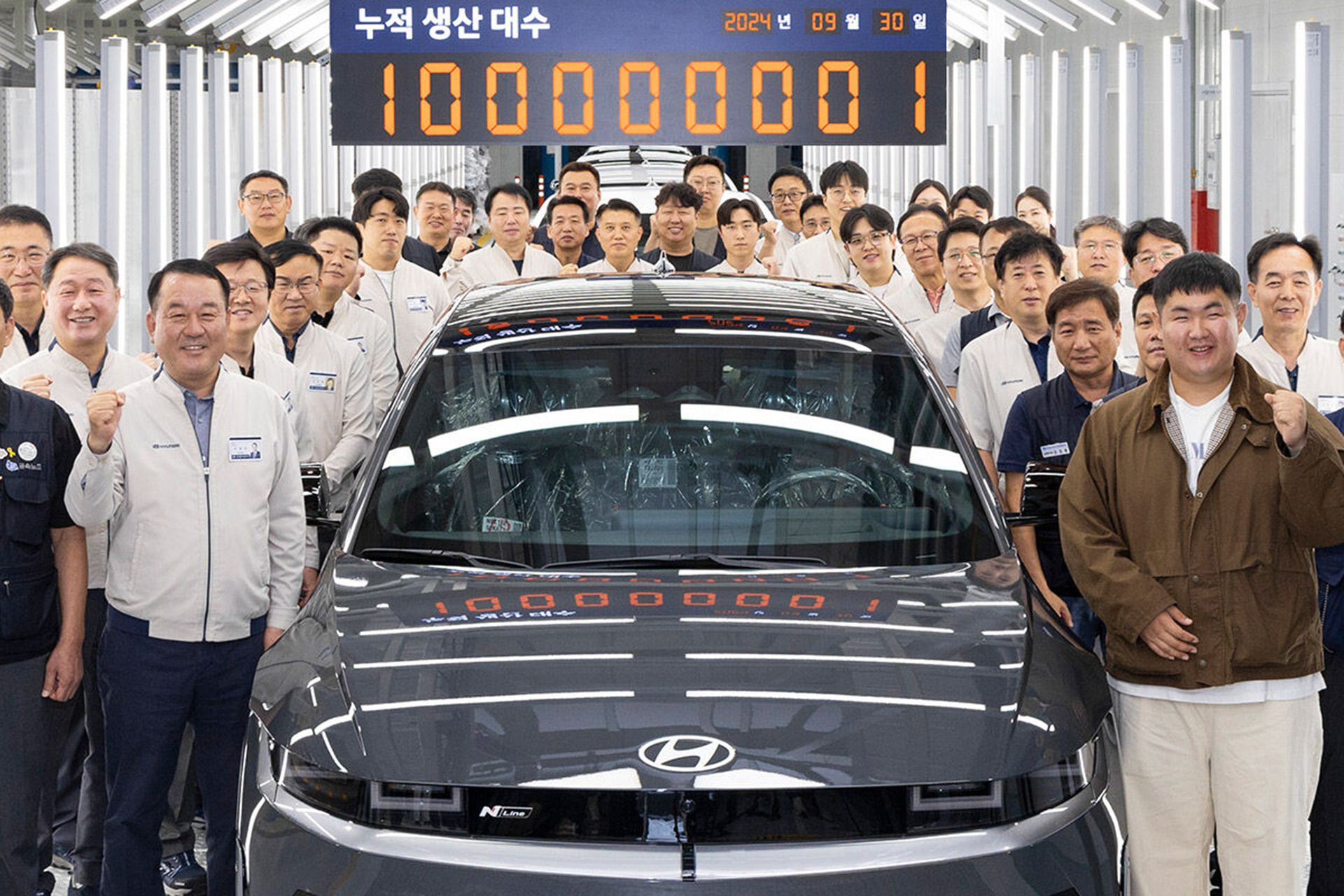
Hyundai announced on Sunday that since its establishment in 1967 (1345), it has produced 100 million vehicles globally. To celebrate this success, the said company delivered its 100 millionth car, which is the all-electric Ioniq 5, to its new owner.

Hyundai
Why the 100 millionth car and not the 100 millionth car? According to Hyundai’s statement on Sunday, this represents the automaker’s “commitment to go one step further by using past achievements as a foundation for future developments.”
Although Hyundai was founded in 1967, its first production plant opened in 1968 (1346) in Ulsan, South Korea. The company describes it as “the birthplace of the development of the Korean auto industry”; Because the first Korean mass-produced car named Pony was made in this factory. Currently, this factory has the capacity to produce 1.6 million cars per year.


Since the 1960s, Hyundai has expanded so much that it now has factories in the Czech Republic, India, Türkiye, and the United States. More interestingly, it took 46 years for this company to finally reach the production record of 50 million devices in 2013 (2013). But since then, it took only 11 years to double this number.
“Reaching 100 million combined global vehicle production is a significant milestone made possible by our customers around the world who have chosen and supported Hyundai since the beginning,” Hyundai President and CEO Jae-hoon Chang said in a statement. Accepting bold challenges and constantly striving for innovation has allowed us to experience rapid growth. It also enables us to take another step towards producing another 100 million units as a leader in the field of transportation.”









